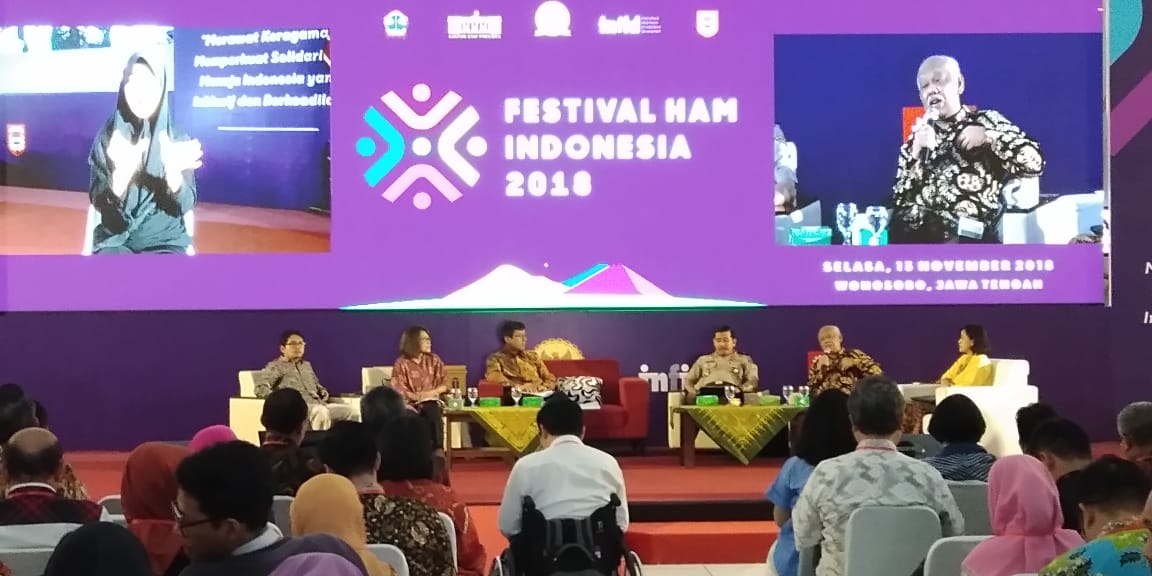
Representatives of the Office of the Presidential Staff (Kantor Staff Presiden, “KSP”), The Indonesian Police, and academics from various institutions gathered to engage in a thematic discussion with regards to intolerance, religious diversity, and social inclusion at the Sasana Adipura Kencana Hall in Wonosobo, Tuesday (13/11).
The participating panel of experts included Jaleswari Pramudya Wardhani of the KSP; Brigjen of the Regional Police Headquarters- Dr Agung Makbul; Academic professor- Azyumardi Azra; Dewi Kanti of the Sunda Wiwitan Institution ; and Ahmad Halili- Director of Setara Institute.
The topic of discussion was well received by the audience, most of whom shared similar values and opinions about the need to reduce intolerance and promote social and cultural pluralism in Indonesia.
The plenary discussion included a question and answer segment which allowed members of the public, as well as members from other institutions to engage with the aforementioned panel of experts.
Jaleswari of the KSP highlighted that the Indonesian Government needs to address human rights violations relating to identity politics. Jaleswari asserted that authorities must take a human rights based approach when exercising their discretion and police duties.
Additionally, police officers should not arbitrarily prosecute members of the public who have different beliefs. If such is the case, Indonesian regulators must regard it as an abuse of power and must take appropriate action to remedy the situation.
Dr Makbul added to Jaleswari’s discussion by suggesting that members of the Indonesian Police Force have a duty to detach their personal emotions when exercising official discretion.
"If members of the police have been found guilty of abuse of power, members of the public, or collective communities are able to file a complaint to the officer’s superior officer," Makbul told.
Halili of the Setara Institute added that issues of intolerance and religious discrimination may be exacerbated through regional regulation and state favouritism.
Dewi Kanti of the Sunda Wiwitan institute suggested that schools are in a prime position to strengthen the understanding of human rights.
She added that human rights education should be added into school curriculums that encourages future generations of Indonesia to be culturally inclusive and tolerant. (Jeff)
Short link













